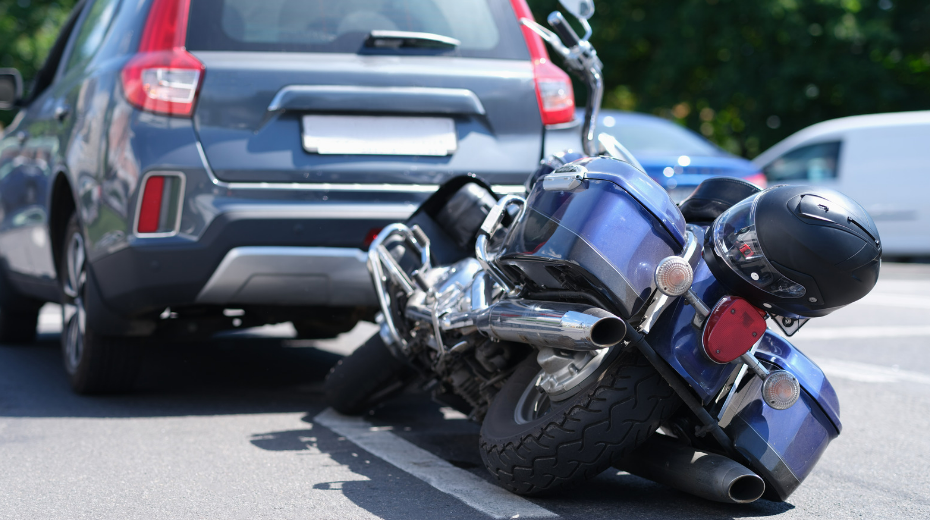Health and Legal Proceedings After Motorcycle Accidents
Motorcycle accidents disrupt many aspects of life and can be very traumatic for the victims and their families. Some may even result in death, which can be extremely devastating. If you or a loved one has been the victim of a motorcycle accident, researching the medical and legal proceedings that typically follow is a smart idea to be prepared.
Even if there isn’t an accident in your family, if there are motorcyclists in the home, it’s good to brush up on rights and statistics regarding motorcycle accidents for better prevention and preparedness. This guide will highlight the basic legal and medical procedures that you’ll typically want to follow after an accident.
Motorcycle Accident Facts
Over the last decade, motorcycle-related deaths have steadily increased. Populated states such as Florida and California see the most deaths due to congested traffic, inclement weather, or dangerous roads. Huge cities like New York or Chicago have an increased risk of accident due to road crowding and even road rage. Accident risk isn’t limited to big cities or states, however. Even smaller states like Tennessee are seeing increased motorcycle accidents and fatalities; 21 riders involved in Sumner County motorcycle crashes were seriously injured. The risk is everywhere, especially if you’re unprotected or unprepared.
Post-Accident Medical Steps
Following an accident, a motorcyclist will likely have at least minor injuries. Following these steps can minimize the risk of further harm.
- If able, assess any injuries and move out of immediate harm’s way (oncoming traffic, out of a burning vehicle, etc).
- Contact 911 for an ambulance or emergency medical assistance, if necessary. Even if your injuries are minor, concussions can be sneaky. It’s best to receive a clean bill of health before assuming.
- Medical assistance will likely take you to the hospital for a checkup. It’s not unusual to receive X-rays, CT scans, or other types of imaging to detect fractures, foreign bodies, or other medical issues that can stem from an accident.
- Depending on the location and type, bone fractures may be splinted or put in a cast. You likely won’t have the mobility of that particular bone or body part for quite some time, usually around several weeks to months.
- Surgery may be necessary for wounds, burns, organ damage, or any other type of injury. Surgery can take hours and require multiple surgeries, depending on the type. Organ transplants aren’t unusual if one loses function.

- Medication will be prescribed for certain injuries to reduce infection or pain.
- Recovery from surgery can take weeks or months depending on the type. Transplant patients typically recover after 4-8 weeks. Burns or road rash can take several weeks to recover from.
- Rehab and physical therapy may be recommended to improve mobility and function after an injury like a fracture. This can take weeks or months to see results. The time it typically takes depends on the injury and how long patients are immobile.
- Home recovery is also common for more chronic or minor injuries. Bedrest may be required before resuming normal activities.
Medical Records
Be certain to retain copies of any medical treatments, procedures, insurance letters, prescriptions, or any other medical document in case you need them for legal purposes. They can also be valuable for tax filing purposes.
Post-Accident Legal Proceedings
There are several legal steps you’ll have to take regardless of liability or fault of the accident.
Police Reports
Calling 911 to the accident scene and reporting it is typically the first legal step to take after an accident has occured. Police reports are important evidence for insurance claims, injury cases, and many other reasons.
Insurance Claims
Typically when an accident occurs, victims will need to file claims with vehicle insurance companies. Liability depends on the individual state’s laws, and insurance plans will vary on what they will cover.

An attorney can also help with filing, but it’s typically a process that involves getting a quote for damages, filing the claim, and providing evidence (photos). Be certain to take photos of vehicle damage for evidence.
Working With an Attorney
An attorney can help file insurance claims, and help walk you through liability laws. Regardless of liability, an attorney can represent you in a legal or courtroom setting in worst-case scenarios. Additionally, if you were in an accident due to a negligent party, you may be entitled to receive personal injury compensation to help with medical bills and missed wages.
Court Dates
If pursuing a personal injury case, settlement, or other type of compensation, there will likely be several court dates to attend with an attorney. Alternatively, you may need to be in court if you have criminal charges against you, such as a DUI or reckless driving charge. In both cases, you will need an attorney to represent you.
Accident Casualties
Often, motorcycle accidents do result in death. If you’ve lost a loved one due to an accident casualty, proceedings will change slightly. You or another family member will have to act on behalf of your late loved one to gather evidence, file any insurance claims if applicable, or seek an attorney for compensation in a wrongful death case.
Conclusion
Accidents can result in serious injuries and, of course, casualties. In the event of either, it’s important to follow proper legal or medical proceedings to reduce complications and further harm.
The post Health and Legal Proceedings After Motorcycle Accidents appeared first on Spring Hill Med Group.




